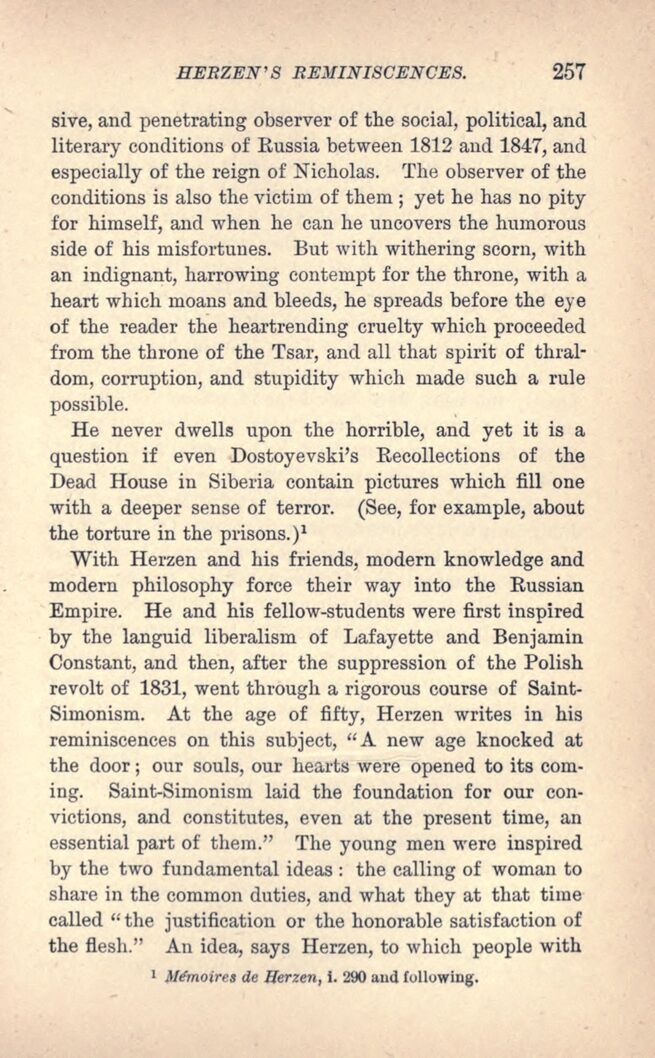
Full resolution (JPEG) - On this page / på denna sida - Impressions of Russian Literature - IV

<< prev. page << föreg. sida << >> nästa sida >> next page >>
Below is the raw OCR text
from the above scanned image.
Do you see an error? Proofread the page now!
Här nedan syns maskintolkade texten från faksimilbilden ovan.
Ser du något fel? Korrekturläs sidan nu!
This page has been proofread at least once.
(diff)
(history)
Denna sida har korrekturlästs minst en gång.
(skillnad)
(historik)
incisive, and penetrating observer of the social, political, and
literary conditions of Russia between 1812 and 1847, and
especially of the reign of Nicholas. The observer of the
conditions is also the victim of them; yet he has no pity
for himself, and when he can he uncovers the humorous
side of his misfortunes. But with withering scorn, with
an indignant, harrowing contempt for the throne, with a
heart which moans and bleeds, he spreads before the eye
of the reader the heartrending cruelty which proceeded
from the throne of the Tsar, and all that spirit of
thraldom, corruption, and stupidity which made such a rule
possible.
He never dwells upon the horrible, and yet it is a
question if even Dostoyevski’s Recollections of the
Dead House in Siberia contain pictures which fill one
with a deeper sense of terror. (See, for example, about
the torture in the prisons.)[1]
With Herzen and his friends, modern knowledge and
modern philosophy force their way into the Russian
Empire. He and his fellow-students were first inspired
by the languid liberalism of Lafayette and Benjamin
Constant, and then, after the suppression of the Polish
revolt of 1831, went through a rigorous course of
Saint-Simonism. At the age of fifty, Herzen writes in his
reminiscences on this subject, “A new age knocked at
the door; our souls, our hearts were opened to its
coming. Saint-Simonism laid the foundation for our
convictions, and constitutes, even at the present time, an
essential part of them.” The young men were inspired
by the two fundamental ideas: the calling of woman to
share in the common duties, and what they at that time
called “the justification or the honorable satisfaction of
the flesh.” An idea, says Herzen, to which people with
<< prev. page << föreg. sida << >> nästa sida >> next page >>